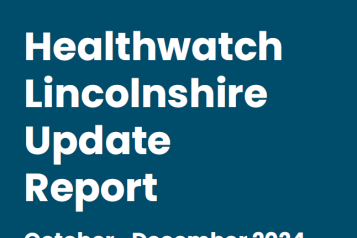Improving access to GPs and primary care
Millions of patients will receive quicker, more convenient access to NHS care from their high street pharmacy, thanks to a major expansion of services under a radical plan to improve access to primary care.
For the first time ever, patients who need prescription medication will be able to get it directly from a pharmacy, without a GP appointment, for seven common conditions including earache, sore throat, or urinary tract infections by next winter, thanks to government investment of £645 million over two years to expand community pharmacy services.
Published today by the NHS and the government, the new blueprint sets out actions to improve access to care, better support patients to manage their own health, and to modernise general practice for future generations.
Almost half a million women will no longer need to speak to a practice nurse or GP to access oral contraception and will instead be able to pop into their local pharmacy for it.
Tens of thousands more people will be at lower risk of a heart attack or stroke, with the NHS more than doubling the number of people able to access blood pressure checks in their local pharmacy – 2.5 million, up from 900,000 carried out last year.
The actions set out in the plan are expected to free up around 15 million GP appointments over the next two years for patients who need them most.
Ending the 8am ‘rush’ for appointments is a key part of the plan, with no patient having to wait on hold only to be told to call back another day for help.
This will be supported by investment in better phone technology for GP teams enabling them to manage multiple calls and redirect them to other specialists, such as pharmacists and mental health practitioners, if more suitable. During trials, this has increased patients’ ability to get through to their practice by almost a third.
Extra training will also be provided to staff answering calls at GP practices, so that people who need to see their family doctor are prioritised while those who would be better seen by other staff such as physiotherapists or mental health specialists are able to bypass their GP.
In a significant new step, up to half a million people a year will be able to self-refer for key services, including physiotherapy, hearing tests, and podiatry, without seeing their GP first.
In the run up to the NHS’ 75th milestone birthday on 5 July, the new plan aims to support primary care services to continue to adapt and innovate to meet patients’ needs, with nine in ten people able to access their GP records, including test results, on the NHS App within the next year.
Demand for access is only going to increase with the number of people over 70, who are five times more likely to need a GP appointment than teenagers, growing by a third since 2010.
GP teams are already treating record numbers, with half a million more appointments delivered every week compared to pre-pandemic.
Amanda Pritchard, NHS chief executive said: “The care and support people receive from their local GP is rightly highly valued by patients and so it is essential that we make it as easy as possible for people to get the help they need.
“GPs and their teams are working incredibly hard to deal with unprecedented demand for appointments. But with an ageing population, we know we need to further expand and transform the way we provide care for our local communities and make these services fit for the future.
“Today, we are setting out an ambitious package of measures to do just that – with pharmacies playing a central role in managing the nation’s health including providing lifesaving checks and medication for common conditions for the first time.
“This blueprint will help us to free up millions of appointments for those who need them most, as well as supporting staff so that they can do less admin and spend more time with patients.
“Over the last 75 years, the NHS has always innovated and adapted to meet the needs of each generation and as we approach the 75th birthday, we are doing that for primary care services – providing easy and convenient care as close to home as possible.”
Prime Minister Rishi Sunak said: “I am getting on with delivering on my five priorities and transforming primary care is the next part of this government’s promise to cut NHS waiting lists.
“I know how frustrating it is to be stuck on hold to your GP practice when you or a family member desperately need an appointment for a common illness. We will end the 8am rush and expand the services offered by pharmacies, meaning patients can get their medication quickly and easily.
“This will relieve pressure on our hard-working GPs by freeing up 15 million appointments, and end the all-too stressful wait on the end of the phone for patients.”
The plan also commits to further reducing bureaucracy for general practice and building on the work of the Academy of Medical Royal Colleges. Local health systems are being tasked with making fit notes available via text and email to patients, to avoid unnecessary return trips to their GP.
A new review by the Academy of Medical Royal Colleges published today shows how the hospital clinicians and GPs can work together to offer patients more joined up care.
In Lincolnshire and East London hospital clinicians virtually join GP appointments for renal appointments and MSK physiotherapy appointments so elderly patients do not need to trek to hospital.
Joint weekly calls between Enfield GPs and urology clinicians in North London hospitals has also reduced the waiting list by a quarter by joining up care better.
Health and Social Care Secretary Steve Barclay said: “This plan will make it easier for people to get GP appointments.
“By upgrading to digital telephone systems and the latest online tools, by transferring some treatment services to our incredibly capable community pharmacies and by cutting unnecessary paperwork we can free up GPs time and let them focus on delivering the care patients need.
“Together with further support to increase the workforce, this plan will provide faster and more convenient care.”
Today’s plan will also change local authority planning guidance to mean access to primary care for new residential areas are given the same level of importance as education.
Louise Ansari, CEO at Healthwatch England, said: “The proposals outlined by NHS England are a step-change in how primary care services will be delivered, be it new digital phone systems to prevent people having to stay on hold for long periods of time or training up teams of care navigators to help patients manage GP referrals to other services. What’s more, these changes have been driven directly by people’s feedback and suggestions for improvement.
“When people manage to see a GP or another practice team member, they continue to tell us that the service provided is usually high quality and often very caring. Yet for millions of people, getting that appointment is often made difficult by the early morning scramble for appointments or poorly designed digital booking systems. These frustrations have boiled over in recent years, translating into some of the lowest-ever satisfaction levels with the NHS.
“We know that part of the solution to addressing problems in primary care is to create more capacity, but this will take time. This plan acknowledges that there are actions the NHS can take today to make accessing care easier.
“Over the coming months, we will be working with NHS England to communicate these changes to patients and the wider public, helping them understand how to access the right service at the right time, and feeding back people’s ongoing experience to ensure plans stay on track.”
Access the Delivery plan for recovering access to primary care here.

